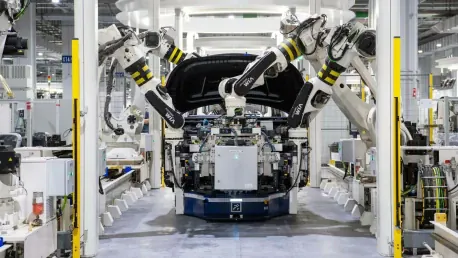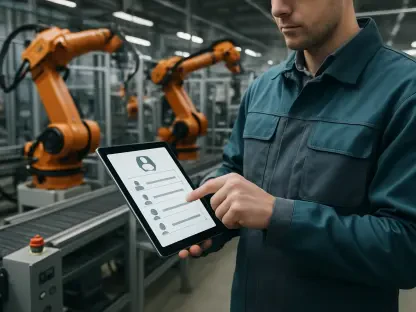Illinois has made significant strides in promoting green energy, particularly in the electric vehicle (EV) sector. However, recent developments have raised questions about the effectiveness and transparency of these investments. This article explores the state’s green initiatives, governance challenges, and the broader socio-political implications.
Illinois’ Commitment to Electric Vehicles
The Lion Electric Setback
Illinois’ ambitious plan to become a leader in electric vehicle manufacturing faced a major hurdle with the Lion Electric plant in Joliet. Governor JB Pritzker had announced that the Canadian electric bus company would produce 10,000 buses annually. However, the company recently suspended operations and laid off over half of its workforce. This setback has raised concerns about the transparency and accountability of the subsidies provided by Illinois taxpayers to Lion Electric. Questions remain about the actual number of buses produced and the specifics of the tax breaks given to the company.
The Lion Electric situation has put a spotlight on how Illinois manages its green investments and the need for better oversight and accountability. Critics argue that the state needs to provide more detailed information about its financial support to companies like Lion Electric, ensuring taxpayers’ money is used effectively. Furthermore, the challenges faced by the company underscore the broader difficulties in promoting renewable energy initiatives, especially when the promised outcomes are not always realized. This case is just one example of the broader issues Illinois faces in ensuring its green energy investments lead to tangible results.
Rivian’s Financial Troubles
The challenges faced by Lion Electric are not isolated. Rivian, another electric car company, has also encountered financial difficulties. Despite significant investments and high expectations, the company has struggled to meet its production targets. These issues highlight a broader pattern of setbacks in Illinois’ green energy initiatives, raising doubts about the state’s ability to deliver on its promises.
Rivian’s financial troubles reveal the volatility and risk associated with the electric vehicle industry. The company’s inability to meet its production targets, despite substantial investments, has led to questions about the viability and long-term sustainability of such ventures. This pattern of financial difficulties across multiple EV manufacturers suggests that Illinois’ strategy in promoting green energy might require reassessment and potential reevaluation of the methods and criteria for awarding subsidies and incentives. Furthermore, these challenges underscore the need for robust support systems and infrastructure to ensure these companies can thrive.
Federal Support and Infrastructure
Transportation Secretary Pete Buttigieg had promised the installation of tens of thousands of electric car charging stations across the country. However, the progress on this front has been slow, with limited visible outcomes to date. This lack of infrastructure development further complicates Illinois’ efforts to promote electric vehicles and underscores the need for more effective federal support.
The slow progress in building essential infrastructure such as charging stations is a significant bottleneck in the adoption of electric vehicles. Without a robust network of charging stations, consumers are less likely to transition from traditional combustion engine cars to EVs. This situation not only hampers the efforts of individual states like Illinois but also highlights the necessity for federal intervention to provide cohesive, nationwide support. The limited outcomes so far suggest that a coordinated effort between federal and state governments might be critical in achieving the ambitious goals set forth in green energy initiatives.
Governance and Electoral Reforms
Ranked-Choice Voting in Evanston
Evanston residents recently voted overwhelmingly in favor of adopting ranked-choice voting for municipal elections starting in 2025. However, the Cook County Clerk’s office, responsible for overseeing Evanston’s elections, has faced criticism for its perceived reluctance to implement the voters’ choice. Legal maneuvers to delay or avoid the implementation have resulted in a lawsuit, highlighting the challenges of governance and electoral reforms.
Critics argue that the resistance from the Cook County Clerk’s office undermines the democratic process and the will of the people. Ranked-choice voting is seen as a potential way to make elections more fair and representative of voter preferences. The legal challenges and delays in implementing this system in Evanston reflect broader issues in American governance, where institutional inertia and resistance to change can hinder progress. This case underscores the importance of having election authorities that actively support and facilitate electoral reforms to ensure the integrity and efficacy of democratic processes.
Oak Park’s Adoption of Ranked-Choice Voting
Oak Park has also adopted ranked-choice voting, and there is hope that the Cook County Clerk’s office will be more cooperative in this case. The successful implementation of ranked-choice voting in Oak Park could serve as a model for other municipalities, including Chicago, which is considering adopting this voting system. The importance of supportive election authorities cannot be overstated in ensuring the success of such reforms.
If Oak Park successfully implements ranked-choice voting without the legal and bureaucratic hurdles faced by Evanston, it will set a significant precedent for other cities. Advocates believe that demonstrating a smooth transition to this voting system in smaller municipalities could help mitigate resistance and build support for broader adoption. Ensuring that election authorities are on board and collaborative is crucial, not only for the successful roll-out of ranked-choice voting but also for maintaining public trust in the electoral system. As more cities observe the potential benefits and smooth implementation process, there could be a groundswell of support leading to more widespread adoption.
Political Tensions and Pardons
The Hunter Biden Controversy
The ongoing controversies surrounding Hunter Biden have further polarized the political landscape. One letter suggests that President Joe Biden should openly and completely pardon his son to address partisan criticisms and defend against perceived retaliation by Trump and his followers. This proactive approach could help mitigate the political “circus” and protect individuals targeted by partisan attacks.
The Hunter Biden controversy is emblematic of the deep divisions within American politics, where personal scandals are often used as ammunition in partisan battles. The suggestion that President Biden should issue a pardon for his son reflects the heightened tensions and the strategies some believe are necessary to counteract perceived political vendettas. This recommendation aims to preemptively defuse one of the many flashpoints that divide the nation, though it also carries the risk of further fueling accusations of corruption or nepotism. This issue illustrates the complex interplay between governance, justice, and public perception in an intensely polarized environment.
Pardons for Trump Critics
The letter also calls for pardons for various figures connected to Trump’s impeachments, such as Liz Cheney and Adam Kinzinger, as well as journalists and entertainers who have been targeted by him. This sentiment reflects the deep political divisions and the desire to protect those who have stood up against perceived injustices.
The calls for pardons extend beyond the Hunter Biden issue, encompassing a broader spectrum of individuals who have been involved in high-profile political clashes. By advocating for pardons for Trump critics like Liz Cheney and Adam Kinzinger, as well as for journalists and entertainers, the letter underscores a desire to shield them from retaliation and ensure their efforts to challenge power are recognized and safeguarded. This perspective highlights the ongoing challenges in maintaining a political environment where dissenting voices can be heard and protected from retribution, thereby fostering a healthier democratic discourse.
Economic Inequality and Oligarchic Influence
Jimmy Carter’s Warning
Former President Jimmy Carter’s assertion that the U.S. has transitioned into an oligarchy dominated by wealthy individuals capable of extensive political bribery is a stark warning. The influence of billionaires in American politics is evident from their ownership of major media outlets and social media platforms, which control public information.
Carter’s warning points to the increasing concentration of power among a small group of wealthy individuals who wield disproportionate influence over political processes and public opinion. The ownership of media and social media platforms by billionaires allows them to shape narratives and control the flow of information, which can sway public perception and political outcomes. This trend raises concerns about the integrity of democratic institutions and the potential for policy decisions to be heavily influenced by the interests of the wealthy, rather than the broader public good. The implications of this shift towards oligarchic control are profound, challenging the foundational principles of equality and fairness in American democracy.
Billionaires Backing Trump
The backing of Trump’s campaign by billionaires raises concerns about potential quid pro quo arrangements that could benefit their corporations and influence federal budget allocations. The article warns of the potential for oligarchies to evolve into dictatorships, citing Trump’s expressed willingness to enact authoritative control if reinstated as president.
The support of Trump by wealthy benefactors not only highlights the significant role of money in politics but also raises alarms about the potential outcomes of such influence. If these billionaires expect favorable treatment or specific policies in return for their financial backing, it could lead to an erosion of democratic processes and exacerbate economic inequalities. The concerns about Trump’s authoritarian tendencies and the threats of oligarchic dominance serve as a cautionary tale about the delicate balance required to maintain a democratic society. The interplay between wealth, power, and governance remains a critical area of concern for those advocating for a fair and equitable political system.
Federal Workforce Reduction Strategies
Reducing Federal Costs
A practical suggestion for reducing federal costs involves not replacing retiring workers. This approach, deemed humane and efficient, is recommended for application at all governmental levels and within private industry. By gradually reducing the workforce through attrition, significant cost savings can be achieved without the need for layoffs.
The strategy of reducing the federal workforce by not replacing retiring employees offers a streamlined and non-disruptive means of cutting government expenditures. This method allows for a natural decrease in workforce sizes, avoiding the negative impacts of abrupt layoffs. The potential savings from this strategy could be substantial, freeing up resources for reallocation to other critical areas or reducing budget deficits. This approach aligns with efforts to optimize operations and embrace more efficient, technology-driven solutions, supporting the government’s aim to do more with less while maintaining service quality and functionality.
Implementation Challenges
Illinois has made considerable progress in promoting green energy, with a strong focus on the electric vehicle (EV) sector. The state’s commitment to sustainable energy has been evident in its various initiatives aimed at boosting the adoption of EVs and reducing carbon emissions. However, recent events have cast a shadow over the effectiveness and transparency of Illinois’ investments in this sector. There are growing concerns about whether the green energy funds are being utilized efficiently and whether there is adequate oversight to ensure that these funds are driving real progress. This article delves into Illinois’ green energy initiatives, examining the governance challenges that have emerged alongside these efforts. It also looks at the broader socio-political implications of the state’s green energy strategies. By addressing these issues, Illinois aims to strengthen its approach to sustainable energy, ensuring that the benefits of green investments are maximized for both the environment and the economy. The discourse around these challenges reflects the state’s ongoing endeavor to balance innovation with accountability.









